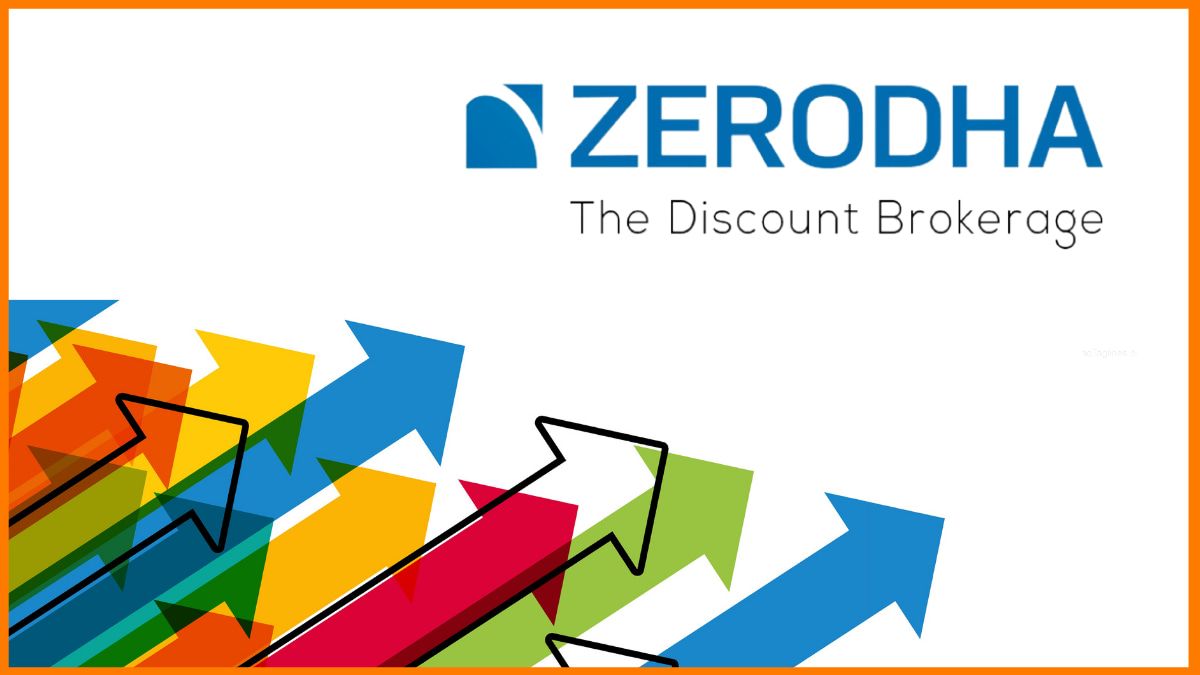Zerodha is a financial technology company that has had a substantial impact on the Indian stock trading industry by making online trading more accessible and affordable. By charging a single fee for intraday and F&O transactions, Zerodha has fundamentally altered the traditional brokerage business model. Zerodha is now regarded as one of the most profitable brokerages in India as a result of the immense volume of transactions it has generated. In this article, we will look at how does Zerodha makes money and the numerous revenue streams that contribute to the company’s success.
Flat fee on intraday and F&O trades
Zerodha charges a fixed rate of 20 rupees per intraday and F&O trade, regardless of the amount of money being exchanged. This development in the brokerage industry renders obsolete the traditional technique of calculating brokerage fees as a percentage of the transaction’s total value. This indicates that the more trades you execute, the higher your brokerage fees will be. Due to Zerodha’s fixed fee model, retail investors can now trade modest quantities without fretting about exorbitant brokerage fees eating into their profits. This has made trading inexpensive for retail investors.
Zerodha’s use of a fixed fee structure has contributed significantly to the company’s success. Since its inception in 2010, the company has witnessed accelerated growth, and it now has over 5 million consumers and a daily turnover of over Rs 20,000 crore. Due to the immense volume of transactions, it conducts, Zerodha can generate a profit while charging minimal brokerage fees.
Money through startup incubation
Through its Rainmatter initiative, Zerodha has also begun to experiment with startup incubation. Rainmatter is a startup incubator and fund that facilitates new companies in the financial technology industry. These start-ups receive seed funding and mentoring from Zerodha; in exchange, Zerodha obtains a portion of the equity in the enterprises.
Rainmatter is already responsible for the creation of several successful enterprises, including Smallcase, Sensibull, and Streak. Smallcase is a platform that enables investors to invest in themed portfolios of stocks, such as those focused on the healthcare or technology industries. Users have access to real-time market data and analytics via the Sensibull platform, a trading environment for derivatives. Streak is a trading platform that employs algorithmic trading and allows users to create and backtest their trading strategies.
The achievements of Rainmatter have assisted Zerodha in establishing a new revenue stream. Now, the company has the opportunity to profit from the expansion of these firms, either by acquiring a portion of their equity or by providing them with access to the trading platform provided by Zerodha.
True Beacon and Mutual Fund AMC
Zerodha has entered the asset management industry through the acquisition of True Beacon, a hedge fund that administers portfolios of high-net-worth individuals (HNI). True Beacon’s algorithmic trading method is of its design, and it has a track record of providing investors with consistent profits.
Zerodha is in the process of establishing a mutual fund asset management company (AMC) that would employ the same algorithmic trading strategy as True Beacon. The asset management company of the mutual fund will appeal to retail investors, offering them an alternative to conventional mutual funds that rely on active fund management.
Zerodha’s entrance into the asset management industry is a calculated business move that leverages the company’s extensive algorithmic trading experience. Thanks to the AMC, Zerodha will have access to a new source of revenue, which will supplement the company’s current brokerage operations.
No marketing strategy for higher profitability
Zerodha’s primary source of new business is referrals from existing consumers and clients, as opposed to more traditional forms of advertising and marketing. Instead of conducting advertisements on television or other mass media, the company relies on the support of its customers to promote its brand.
Zerodha’s lack of a marketing strategy provides several advantages. In the first place, it reduces the organisation’s administrative expenses by eliminating the need for advertising expenditures. Second, it frees up the company’s resources so that it can focus on providing the highest possible level of service to its consumers, as opposed to devoting those resources to various marketing initiatives. Thirdly, it creates a sense of exclusivity around the brand because, to recommend Zerodha to others, one must have previously utilised the company’s services.
Zerodha’s effectiveness in generating revenue has been significantly impacted by the death of a marketing plan. As a result of diminished administrative expenses, Zerodha can offer low brokerage fees while still generating a profit. In addition, the company’s emphasis on providing excellent customer service has resulted in a high level of client satisfaction, which has led to an increase in the number of referrals and repeat customers.
Affiliate model for promotion
Although Zerodha does not use conventional marketing channels to promote its services, the company does use an affiliate programme for promotional purposes. Affiliates of Zerodha are individuals or businesses that promote Zerodha’s services for a commission.
Zerodha’s affiliate model generates a situation in which both the company and its associates benefit, resulting in a win-win situation. Affiliates have the opportunity to earn a commission for each new customer they refer to Zerodha, while Zerodha benefits from increased referrals and business.
Minimal overheads for lower expenses
Because Zerodha’s business model is predicated on maintaining low administrative costs, the company can charge competitively low brokerage fees while still generating a profit. Zerodha’s administrative expenses are considerably lower than those of conventional brokers because it conducts business online rather than maintaining physical locations. In addition, Zerodha’s lack of a marketing plan contributes to the company’s reduced administrative expenses.
Due to its low operating expenses, Zerodha can offer retail investors trading at an affordable price. This has allowed the company to become one of the most profitable and successful brokerages in India, as well as attracting millions of new consumers.
Conclusion
Zerodha’s creative business approach, which focuses on making trading accessible and inexpensive for typical investors, may be credited with the company’s success. Many things, including Zerodha’s fixed fee model, startup incubation, asset management, lack of a marketing plan, affiliate model, and low administrative costs, have an impact on the company’s ability to turn a profit. The unique brokerage business model of Zerodha has created a new standard for cost-effective trading, and the company’s explosive growth doesn’t seem to be slowing down anytime soon. It is likely that Zerodha will continue to dominate the Indian financial technology market for many years as the company grows and enters new markets.




